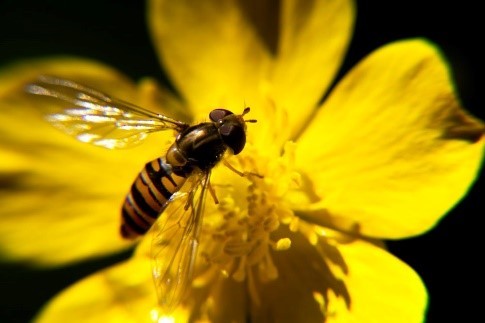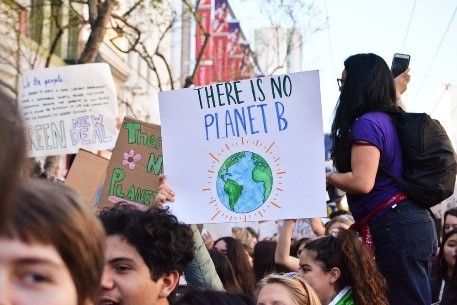World Milk Day 2024 Report – Celebrating Dairy’s Vital Role in Nutrition and Sustainability
This year, on June 1, we celebrated the vital role that dairy plays in delivering…
The Post-2020 Global Biodiversity Framework (GBF) will set the level of ambition for actions by countries and other stakeholders to reduce biodiversity loss and protect our planet for the next decades. It marks the completion of the Aichi Targets agreed to ten years ago and, although there was progress made in some areas, we are far away from having accomplished all.
 The new framework must acknowledge the urgency in reversing biodiversity losses. All conservation and environmental “hot topics” are on the agenda – from endangered species and resource use efficiencies to benefit-sharing and climate change. We have the chance to address gaps, set new targets and renew stakeholders’ commitment to the environment. It is also an opportunity to think “outside of the box”. Why not explore new solutions to old (and persistent) challenges?
The new framework must acknowledge the urgency in reversing biodiversity losses. All conservation and environmental “hot topics” are on the agenda – from endangered species and resource use efficiencies to benefit-sharing and climate change. We have the chance to address gaps, set new targets and renew stakeholders’ commitment to the environment. It is also an opportunity to think “outside of the box”. Why not explore new solutions to old (and persistent) challenges?
In some fields, limitations of existing conservation tools and approaches are clear. Take invasive alien species (IAS), for instance. IAS are a leading cause of biodiversity loss worldwide and species extinctions on islands – where 75% of reptile, bird, amphibian, and mammal extinctions have occurred. Today, rodenticides are the only effective tools for removing or controlling invasive rodents on large islands, and there are social, ethical, ecological, and financial constraints that limit this conservation method (check GBIRd’s website for more information). Gene drive technology is one potential cost-effective, scaleable, and sustainable tool that could complement existing approaches, leading to more promising results. Science can once again be our ally!
Governments are at the frontline of the process, but the outcomes will affect all sectors. This is because among the main issues holding back discussions are “who is responsible for what”, and “who should do what.”
The private sector is recognized as an essential partner to make our world more sustainable. However, some stakeholders accuse businesses of being the primary cause of the adverse environmental impacts we are facing. Ambivalent positions are also observed in the case of the agricultural and dairy sectors. Their contribution to food security, health and nutrition are unquestionable, and they are also the principal income source of many, many families worldwide. At the same time, they are often among the list of main drivers of biodiversity loss and climate change.
 How will negotiators find a balance between all these? How will countries transform production and consumption patterns without neglecting social and economic aspects inherent to change? Answers are yet to be seen. Nevertheless, we cannot continue on this path.
How will negotiators find a balance between all these? How will countries transform production and consumption patterns without neglecting social and economic aspects inherent to change? Answers are yet to be seen. Nevertheless, we cannot continue on this path.
Over the past two decades, the number of endangered species and the rate of ecosystem degradation has increased dramatically worldwide. Approximately 1 million plant and animal species are now at risk of extinction, according to this IPBES Report. We need change, and we need it now!
Interested in following the discussions? Here is where we are now!
The GBF will be finalised and adopted at the Conference of the Parties to the Convention on Biological Diversity (CBD COP-15), which now has been postponed to May 2021 due to the COVID-19 pandemic. Negotiations started last year, and CBD published the “Zero Draft” of the framework in February, in time for the second meeting of the GBF working group (OEWG2). The process has slowed down since then, as several meetings that are expected to feed negotiation rounds were also postponed, including the IUCN World Conservation Congress (WCC) and the Subsidiary Body on Scientific, Technical and Technological Advice (SBSTTA-24).
Activities started to pick up again in July. CBD published three documents for peer review. Goals and targets are not under review at this point, but inputs will guide discussions on OEWG3. The Thematic Consultation on Sustainable Use of Biological Diversity has just started. It will include two webinars, one online survey and one online forum until October. Sustainable production and consumption, nature-based solutions, nutrition, and pollution, are among the main topics under discussion. The CBD Secretariat is also preparing a series of special virtual sessions of SBSTTA on September 15-18. The outcomes of all these initiatives will serve as inputs for future negotiation rounds of the Post-2020 Global Biodiversity Framework.
For more information, keep an eye on CBD’s website!